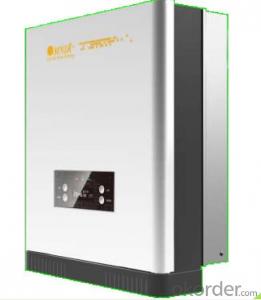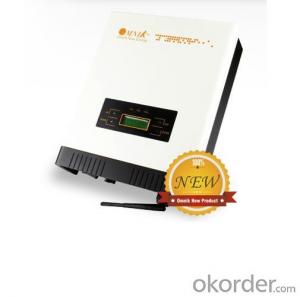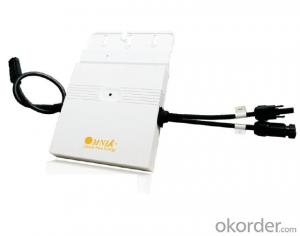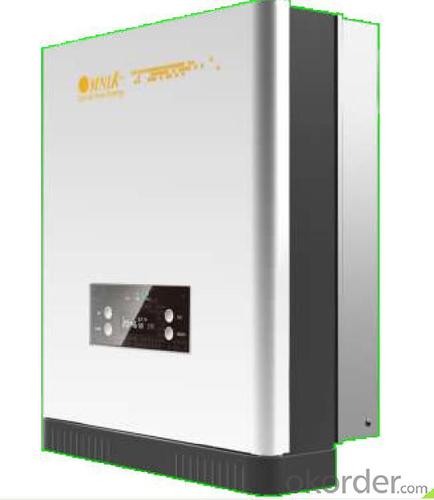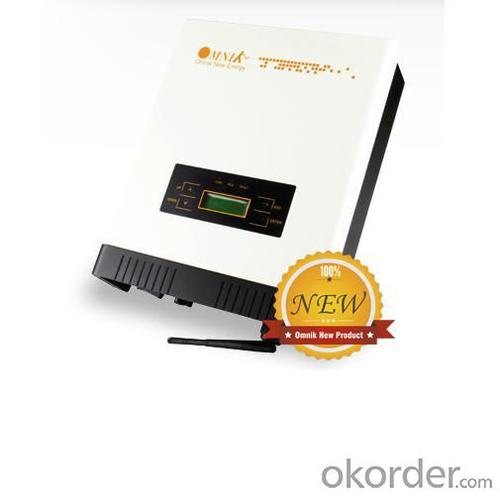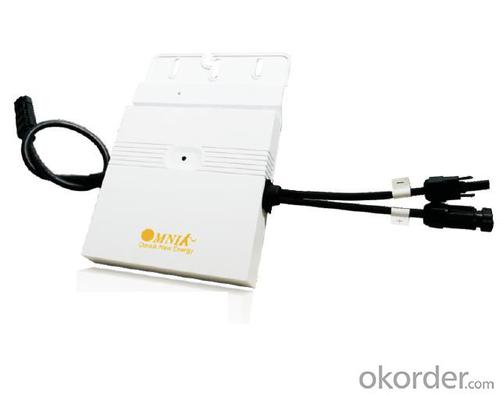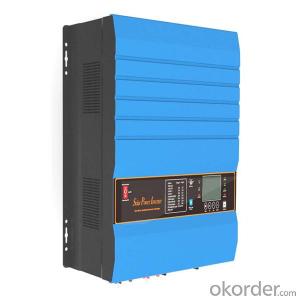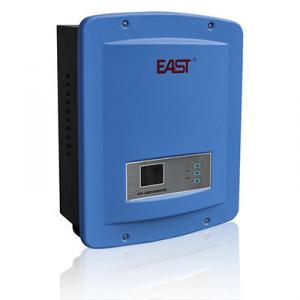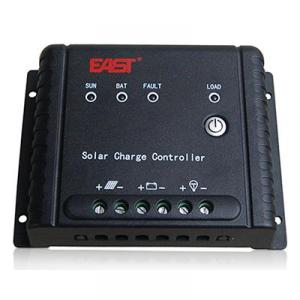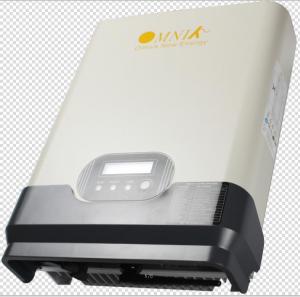On grid solar inverter Omniksol-2.0k-TL2
- Loading Port:
- Shanghai
- Payment Terms:
- TT OR LC
- Min Order Qty:
- 12 pc
- Supply Capability:
- 3000 pc/month
OKorder Service Pledge
OKorder Financial Service
You Might Also Like
Omnik new energy solar inverter
Omniksol-2.0k-TL Photon Efficiency up to 3kW
in the world------ Photon tested Jan. 2012.
Omniksol-2.0k-TL2
1.Futures
Built-in GPRS as option
Built-in Wifi as option
External inductor and built-in fan
smaller and lighter, 2k only 9.6kg
High performance DSP for algorithm control
VDE-AR-N 4105 certification
Self-developed topology design
Multi-button touch interface
LCD screen visible at night
10 years warranty(5~15 years as option)
2.Technical data:
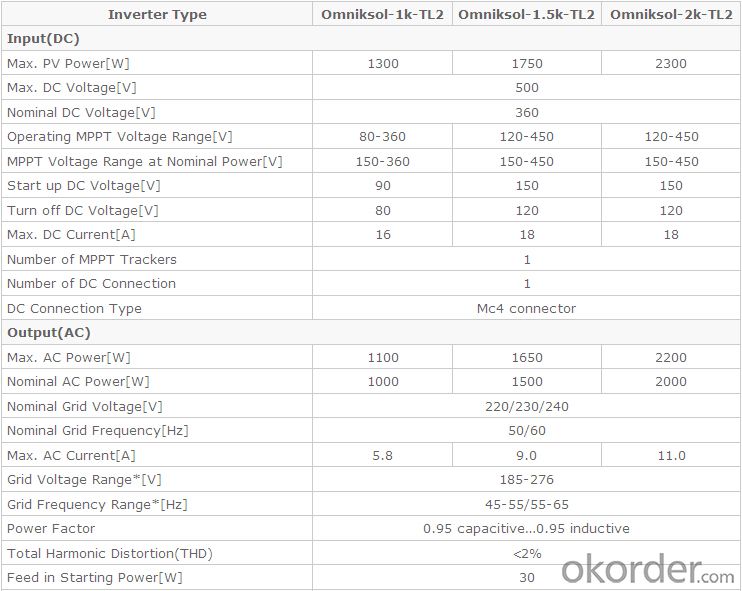
3.solar inverter certificate
EN 61000
VDE 0126-1-1
C10/11
G83/2
UTE C15-712-1
AS4777
CQC
CE10-21
EN50438
4.product outlook
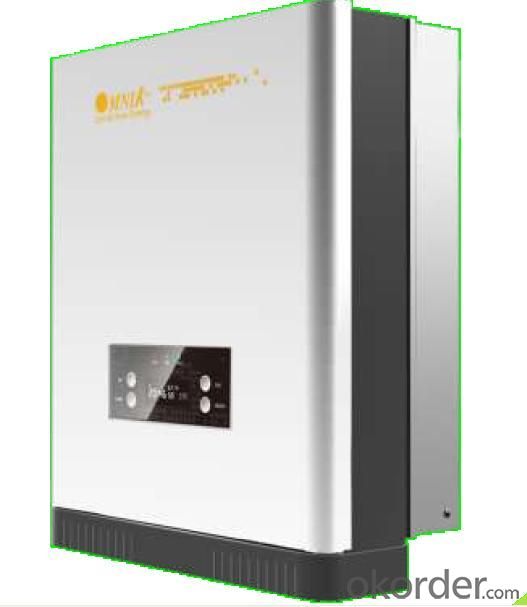
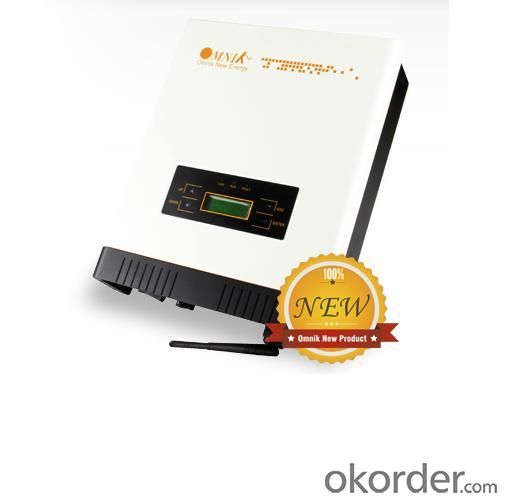
1. How long will my inquiry get response?
Your inquiry related to our products or prices will be replied within 24 hours.
2. Can I get professional service and suggestion?
Well-trained and experienced staffs to answer all your questions in fluent English.
3. Do you accept OEM or customized design?
OEM & ODM, any your customized lightings we can help you to design and put into product.
4. What if I need specific design?
Distributorship are offered for your unique design and some our current models.
- Q: How does a solar inverter handle grid faults or disturbances?
- A solar inverter handles grid faults or disturbances by continuously monitoring the grid voltage and frequency. When a fault or disturbance is detected, the solar inverter quickly disconnects from the grid to ensure safety and protect the system. It then enters a standby mode until the grid returns to normal conditions. Once the grid stabilizes, the solar inverter reconnects and resumes its normal operation of converting solar energy into usable electricity.
- Q: Are solar inverters compatible with different solar panel technologies?
- Yes, solar inverters are generally compatible with different solar panel technologies. However, it is important to ensure that the inverter's specifications and capabilities align with the specific requirements of the solar panels being used. Some inverters may be optimized for certain panel technologies, so it's advisable to consult with manufacturers or experts to ensure compatibility and maximize system efficiency.
- Q: What is the cost of a solar inverter?
- The cost of a solar inverter can vary depending on various factors such as the brand, size, capacity, and additional features. Generally, residential solar inverters can range from $500 to $2,000, while commercial or larger-scale inverters can cost several thousand dollars. It is recommended to consult with a solar installer or supplier to get an accurate cost estimate based on your specific requirements.
- Q: Can a solar inverter be used in systems with multiple solar arrays?
- Yes, a solar inverter can be used in systems with multiple solar arrays. In fact, it is common practice to connect multiple solar arrays to a single inverter, especially in larger solar installations. The inverter converts the DC power generated by the solar arrays into AC power that can be used by the electrical grid or consumed directly. By connecting multiple arrays to a single inverter, the overall system efficiency can be maximized, and it allows for easier monitoring and control of the entire solar power system.
- Q: Can a solar inverter be used in a hybrid solar system?
- Yes, a solar inverter can be used in a hybrid solar system. A hybrid solar system combines both solar energy and another source of energy, such as a battery or grid power. The solar inverter is responsible for converting the DC (direct current) power generated by the solar panels into AC (alternating current) power that can be used to power the electrical devices in a home or business. In a hybrid solar system, the solar inverter can still perform this function, allowing the system to utilize solar energy while also being able to draw power from other sources when needed.
- Q: Can a solar inverter be used with a solar-powered emergency lighting system?
- Yes, a solar inverter can be used with a solar-powered emergency lighting system. The solar inverter is responsible for converting the direct current (DC) generated by the solar panels into alternating current (AC) which is required to power the emergency lighting system. This allows the system to store and utilize the solar energy effectively, ensuring uninterrupted power supply during emergencies.
- Q: Can a solar inverter be used with solar-powered remote sensing systems?
- Yes, a solar inverter can be used with solar-powered remote sensing systems. A solar inverter is responsible for converting the direct current (DC) generated by solar panels into alternating current (AC) that can be used to power various devices and systems. In the case of solar-powered remote sensing systems, the solar inverter would be an essential component in converting the DC power from the solar panels into the required AC power to operate the remote sensing equipment.
- Q: What is a solar inverter?
- A solar inverter is an electronic device that converts the direct current (DC) electricity generated by solar panels into alternating current (AC) electricity, which is suitable for use in homes, businesses, and the electrical grid.
- Q: How does a solar inverter monitor and optimize energy production?
- A solar inverter monitors and optimizes energy production by tracking the amount of solar energy being generated by the solar panels. It continuously adjusts the voltage and current to ensure the maximum power is being extracted from the panels. Additionally, it monitors the grid conditions and adjusts the output accordingly to ensure compatibility and stability. Through advanced algorithms and real-time data analysis, a solar inverter maximizes energy production by continuously adapting to the changing environmental and grid conditions.
- Q: Can a solar inverter be used with different types of solar panel mounting systems?
- Yes, a solar inverter can be used with different types of solar panel mounting systems. The solar inverter is responsible for converting the direct current (DC) generated by the solar panels into alternating current (AC) that can be used to power electrical devices. The mounting system, on the other hand, is used to securely install the solar panels in various locations such as rooftops, ground mounts, or pole mounts. As long as the solar panels are compatible with the inverter's specifications and the mounting system is properly installed, the solar inverter can be used with different types of solar panel mounting systems.
Send your message to us
On grid solar inverter Omniksol-2.0k-TL2
- Loading Port:
- Shanghai
- Payment Terms:
- TT OR LC
- Min Order Qty:
- 12 pc
- Supply Capability:
- 3000 pc/month
OKorder Service Pledge
OKorder Financial Service
Similar products
Hot products
Hot Searches
Related keywords
